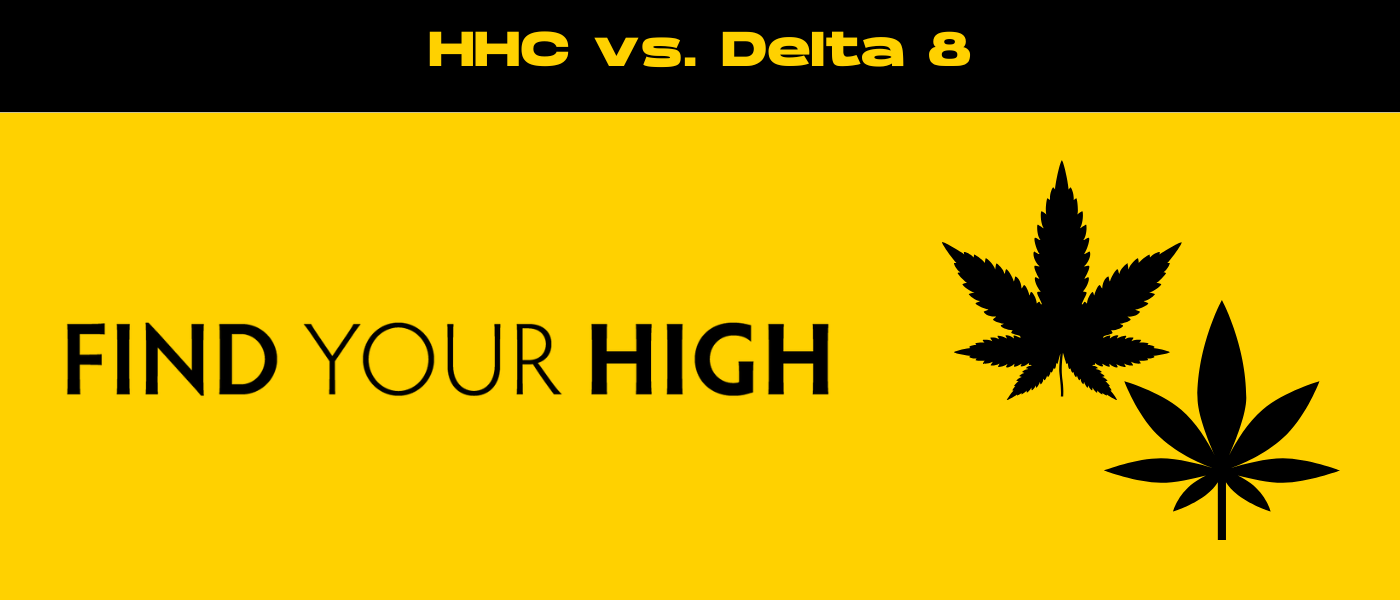In the world of hemp-derived cannabinoids, HHC vs Delta 8 THC are like those quirky cousins you only see at family reunions—they’re similar, yet oh-so-different.
Hexahydrocannabinol, or HHC, is the lesser-known sibling quietly waiting in the wings, while Delta 8 THC is the cool kid on the block, basking in its newfound fame. As they both elbow their way into the spotlight, it’s crucial to understand what sets them apart. These differences can affect everything from their legal status to their impact on your high.
In this showdown, we’ll dive into the chemistry of HHC, compare it to the more familiar Delta 8 THC from hemp plants, and break down why this matters to you. So, grab your favorite snacks, and let’s dive into the cannabinoid ring!
What is HHC?
Hexahydrocannabinol, or HHC for those who prefer not to trip over syllables, is one of the many cannabinoids found in the hemp plant. Unlike its more popular siblings, HHC is only present in trace amounts.
First discovered in the mid-20th century, HHC is essentially a hydrogenated form of THC, created when hydrogen is added to Delta 9, in a chemical process reminiscent of oil hydrogenation. This not-so-well-known cannabinoid boasts distinct chemical structures that are similar to THC but with a twist—literally! Adding those hydrogen atoms makes HHC more stable than THC, potentially giving it durability against heat and ultraviolet light.
Still, its effects and benefits are just starting to catch the eyes of researchers and consumers alike, often presenting as a milder, potentially friendlier ride.
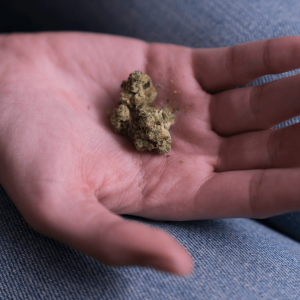
How HHC is Derived
HHC extraction starts with the cannabis plant playing a starring role, where cannabinoids are gently plucked using methods like CO2 extraction.
However, HHC isn’t laying around like other cannabinoids. Instead, it’s typically synthesized in a lab. Scientists, donning their lab coats, wave their magic wands—or maybe just clever science tools—combining THC with hydrogen molecules through a chemical process called hydrogenation. Think of it like baking a cake: you start with THC batter, sprinkle in hydrogen sugar, and out pops a stable HHC treat, resistant to heat and UV.
This synthesis not only gives HHC its distinct identity but also paves the way for potential future innovations in cannabinoid use. Sounds like chemistry class just spiced up a notch, doesn’t it?
What is Delta 8 THC?
Delta 8 THC, the not-so-distant cousin of the much-loved Delta 9, has earned its cool kid reputation by offering a similar, yet subtly distinct experience. Unlike stardom-hogging Delta 9 THC, Delta 8 THC tends to deliver a smoother high, often described as clear-headed and anxiety-light. This is due to the fact that the chemical structure of Delta 8 THC doesn’t latch on to cannabinoid receptors as strongly as Delta 9 THC molecules.
This up-and-coming cannabinoid originates from the degradation of Delta 9 THC, resulting in fewer intoxicating effects—bringing joy to those who prefer mellow vibes. Chemically, Delta 8 THC has a similar molecular structure to Delta 9, though the double bond appears on the eighth carbon chain instead of the ninth. This small change in molecular layout results in notable differences in potency and effects.
Delta 8 THC is making waves in the cannabis community as a potentially more approachable alternative for those curious to dip their toes into the THC pond without making a big splash.
How Delta 8 is Derived
Creating Delta 8 THC starts with a hemp plant, where cannabinoids hang out until CO2 extraction swoops in to save the day, plucking them out with precision and care.
But, much like HHC, Delta 8 doesn’t just roll out of bed fully formed. Scientists dive into the depths of Delta 9, the more famous sibling, and work their transformation magic. This involves rearranging it through isomerization, a process that converts Delta 9 THC to Delta 8 THC. This requires a solvent and an acid catalyst to guide the metamorphosis, ensuring that the result is as pristine as a brand-new kitchen.
Legal Status
When it comes to legality, HHC and Delta 8 find themselves tiptoeing through a minefield of regulations—a bit like navigating a maze blindfolded.
The legal status of HHC is still somewhat murky, primarily because it’s a lesser-known cannabinoid without the household name recognition of its peers. Many jurisdictions haven’t quite decided on its status, making it a cannabis explorer’s surprise bag.
Delta 8, on the other hand, enjoys widespread fame, but its legality is as mixed as a bag of trail mix—it’s legal in some parts but strictly off-limits in others. This is largely because, while Delta 8 is derived from hemp and technically adheres to the 2018 Farm Bill’s guidelines, some states have tightened their grip, banning it due to its psychoactive properties.
Comparatively, both cannabinoids exist in a gray area, with federal laws hinting at approval but state laws frequently throwing curveballs. So, if you’re pondering a cannabinoid adventure, remember to first check your local laws—unless, of course, you’re fond of surprises in the form of unwelcome greetings from legal authorities.
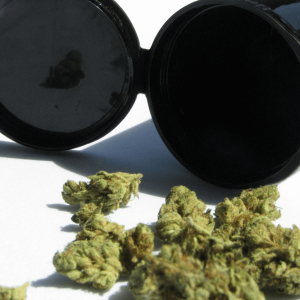
Psychoactive Effects
When it comes to the psychoactive effects, both HHC and Delta 8 THC impact the endocannabinoid system in unique ways that set them apart from each other and their infamous sibling, Delta 9. Let’s break down what you might experience:
HHC:
- Known for providing a milder buzz, HHC’s effects on the endocannabinoid system are often described as somewhere between Delta 8 and Delta 9.
- Users report feelings of euphoria and relaxation, without the intense high that can sometimes accompany Delta 9.
- Due to its stability, HHC might offer a steadier, more predictable experience that minimizes anxiety or paranoia.
Delta 8:
- Delta 8 THC takes pride in its reputation as the “chill” cannabinoid, delivering a gentle high that’s often lauded for its clear-headedness.
- The psychoactive effects are subtle yet palpable, offering peace without the chaos some users experience with Delta 9.
- Users commonly enjoy an uplift in mood with reduced anxiety, making it a popular choice for those seeking light-hearted vibes.
Overall, the user experience with both HHC and Delta 8 tends to be pleasant and controlled. HHC might appeal to those venturing into the cannabinoid realm for stability and predictability, while Delta 8 caters to the seekers of a calm, mellow ride. Both offer alternatives that dance delicately on the edge of euphoria, without tipping into overwhelming psychoactive territory.
Medical Benefits
While formal research is in its early stages, initial findings and anecdotal reports provide a peek into their promising advantages:
Potential Benefits of HHC:
- HHC may offer pain-relieving properties, making it a potential candidate for managing chronic pain.
- Some users report anti-inflammatory effects, which could be beneficial for conditions like arthritis.
- Its reputed anxiolytic qualities suggest it might be helpful in reducing anxiety and promoting better mental well-being.
Potential Benefits of Delta 8:
- Delta 8 is often celebrated for its antiemetic effects, which help alleviate nausea and vomiting, particularly in chemotherapy patients.
- Its appetite-stimulating properties make it a potential alternative for those struggling with appetite loss.
- Anecdotal evidence suggests Delta 8 may also possess analgesic properties, offering relief from mild pain conditions.
Despite these potential benefits, it’s important to note that comprehensive research is still unfolding. The key difference lies in Delta 8’s prominence in supporting nausea relief versus HHC’s more gentle general wellness contributions.
Side Effects
Before diving head-first into the world of cannabinoids, it’s important to weigh the potential side effects.
Common Side Effects of HHC:
- Users might experience mild dizziness or drowsiness, which could interfere with daily activities.
- Some report dry mouth, a common side effect among potential cannabinoids.
- Occasional mild headaches have been noted, although they tend to be short-lived.
Common Side Effects of Delta 8:
- Delta 8 might cause dry eyes and mouth, similar to the experiences with Delta 9.
- Temporary feelings of anxiety or paranoia could occur in users not familiar with its effects.
- It might also induce slight fatigue, leading to a cozy nap session if one isn’t careful.
While the side effects of both HHC and Delta 8 appear manageable, safety concerns stem from the lack of extensive long-term research. As with any cannabinoid, starting with low doses and being mindful of individual responses goes a long way in ensuring a safe and delightful experience.

Market Availability
HHC, being a relatively new cannabinoid, is slowly finding its way into the spotlight. You may stumble upon HHC-infused gummies, vapes, and tinctures sparingly offered by niche distributors, a secret treasure for those in-the-know.
Delta 8, on the other hand, is the rockstar of the market, available in an assortment of different products—think edibles, cartridges, and even topicals, depending on where you shop.
Observing market trends, the demand for Delta 8 continues to soar due to its accessible high and wider legal acceptance. However, HHC’s growth trajectory is promising, as curiosity-driven consumers are keen to explore its unique offerings.
Consumer Preferences
When it comes to consumer preferences, the battle between HHC and Delta 8 is like a friendly neighborhood rivalry.
Delta 8 garners a significant following among those seeking a mellow vibe with a clear headspace, making it the go-to choice for casual weekend warriors and professionals alike. Meanwhile, HHC has piqued the interest of adventurous souls yearning for a nuanced experience brushed with a hint of novelty.
Factors that influence these choices include desired psychoactive effects, product accessibility, and individual responses to cannabinoids. Additionally, the lingering legal ambiguity and price points sway some enthusiasts towards Delta 8 over its clandestine counterpart.
Ultimately, consumer choice is guided by personal taste, lifestyle demands, and a sprinkle of curious experimentation.
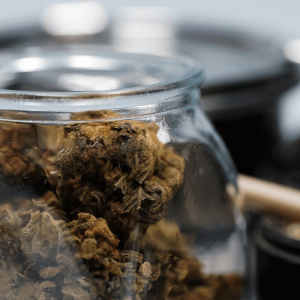
Potency Levels
When it comes to potency, both HHC and Delta 8 play interesting, yet distinct roles in the world of cannabinoids. HHC is often perceived as lying somewhere between Delta 8 and Delta 9 regarding its effects. This positioning makes it attractive to experienced users looking for something a bit stronger than Delta 8 THC, yet not as overpowering as Delta 9.
On the flip side, Delta 8’s gentle approach has made it a hit for those preferring a subtler high. It’s ideal for users wanting a clear and manageable buzz without a mental overload.
For consumers, understanding these potency differences is crucial. Start low and go slow, especially when experimenting with a new product, as individual tolerance can vary significantly. Knowing your preferred strength can help avoid any unwanted surprises and ensure a smoother, more enjoyable experience.
HHC vs Delta 8: Price Comparison
In the wild world of cannabinoid pricing, HHC products often sit on the pricier side due to their relative novelty and limited availability. Prices for HHC-infused items like vapes and edibles can vary considerably based on location and vendor, with some pricing close to premium HHC products.
Meanwhile, Delta 8 THC enjoys broader market availability, often contributing to more competitive pricing. Retailers typically offer Delta 8 products like gummies and cartridges at a range of price points, accommodating budget-conscious users.
Economics plays a notable role in the choice between these options. While Delta 8 may appeal to those seeking affordability without sacrificing effect, HHC’s emerging status might draw users keen on novelty and unique experiences, albeit at a slightly higher cost. Thus, budget, availability, and personal preferences are key factors guiding consumer decisions in this vibrant marketplace.
Laboratory Testing and Safety
When it comes to cannabinoids like HHC and Delta 8, the importance of laboratory testing can’t be overstated. For HHC, lab testing ensures that the products are free from harmful contaminants and accurately dosed. This rigorous scrutiny provides peace of mind in knowing consumers are getting a safe and reliable product, a critical factor given its novelty and the scarcity of research.
Similarly, Delta 8 THC benefits tremendously from thorough lab testing. Despite its broader familiarity, ensuring that products are free from pesticides, heavy metals, and residual solvents is vital for maintaining consumer trust.
As with any cannabinoid, consistent lab testing is necessary to guarantee safety and compliance, ultimately resulting in a happier, healthier user experience.
Future Trends
Looking ahead, HHC is expected to gain more and more popularity. And as its popularity begins to rise, research investments are expected to follow, revealing more about its potential benefits and side effects. The rise of HHC-inclusive products may see an upswing, as early adopters pave the way for a wider audience intrigued by its unique properties.
Delta 8 THC, conversely, rides on the momentum of its already widespread acceptance. Its versatility and milder psychotropic effects continue to captivate consumers, suggesting a sustained demand. Industry insights highlight that, with evolving regulatory frameworks and a growing emphasis on sustainability, we may see innovations like eco-friendly packaging and organic sourcing becoming standard.
Both cannabinoids are on a trajectory that promises not only new product lines but also an increased focus on responsible consumption and environmental stewardship.
Regulatory Perspectives
Currently, the regulatory outlook for HHC is a patchwork of uncertainty, largely due to its emergent status and minimal public awareness. This lack of clarity presents challenges for manufacturers eager to produce HHC-compliant products.
In contrast, Delta 8 has seen more regulatory scrutiny, especially as government bodies reconsider its legal standing given its mild psychoactive nature. The landscape is ever-changing, with individual states within the U.S. enacting their rules while awaiting broader federal guidance.
As regulations evolve, it’s anticipated that both cannabinoids will encounter stricter oversight, which could standardize quality and safety but might also restrict accessibility. The future may hold clearer, more cohesive regulations that protect consumers while fostering responsible innovation—a balancing act that could redefine the cannabinoid market.
HHC vs Delta 8: Cannabinoid Showdown Final Thoughts
As we wrap up our cannabinoid showdown between HHC vs Delta 8, it’s clear that both have carved out unique niches in the market. HHC entices with its intriguing balance of effects, acting as a bridge between Delta 8 and Delta 9’s potency.
Meanwhile, Delta 8 remains a crowd favorite for its approachable, mellow vibe and wallet-friendly prices. For those wondering which to try, consider your personal potency preference, budget constraints, and readiness for experimentation.
Start with a low dose, whether you’re leaning towards HHC’s novelty or Delta 8’s laid-back buzz, and always check for lab-tested products to ensure a safe experience. And finally, as the market evolves and regulations become clearer, staying informed will be key.
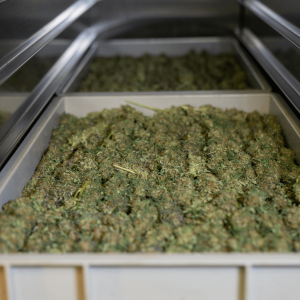
HHC vs Delta 8: Frequently Asked Questions
1. Does Delta 8 or HHC get you higher?
In the great debate over which gets you higher, Delta 8 and HHC both have their fortes. Generally, HHC is noted for delivering a stronger high than Delta 8, giving consumers a sensation that somewhat treads closer to Delta 9 territory. However, individual experiences can differ wildly, so it’s best to try both to see which one gives you that personal cloud nine.
2. Is HHC the most potent?
HHC sits in an intriguing spot on the potency ladder—it’s stronger than Delta 8 but has yet to dethrone Delta 9 from its potent peak. Its appeal lies in its perfect middle ground, providing a buzz that’s powerful yet not overwhelming, making it a strong contender but not the reigning champion.
3. Is HHC as strong as Delta 9?
While HHC gives a decent punch of potency, it’s not quite in the same heavyweight class as Delta 9. Users may find HHC more approachable if Delta 9 tends to tip the scales towards too intense. It offers a balanced high for those seeking a middle path without the Delta 9 intensity.
4. Is HHC or Delta 8 better for pain?
When it comes to choosing HHC or Delta 8 THC for pain relief, it really boils down to personal preference and needs. Some users report that HHC’s slightly stronger effects make it better for managing pain, while others prefer Delta 8’s milder touch. As always with cannabinoids, individual responses will vary, so experimenting responsibly with both might help you find which relief method suits you best.
5. Does Delta 8 show up on drug tests?
Yes, Delta 8 can show up on a drug test. Most standard drug tests aren’t designed to differentiate between Delta 8 and Delta 9 THC from cannabis plants, so it’s likely they will detect the presence of Delta 8 and result in a positive test for THC.

 Rewards
Rewards



